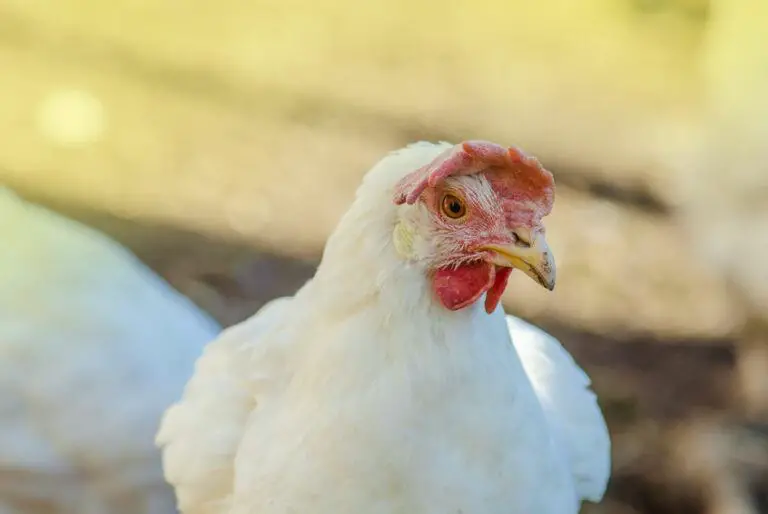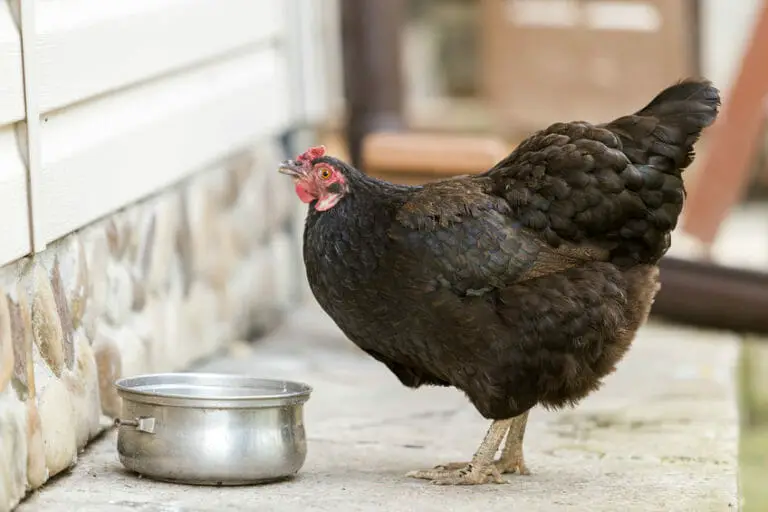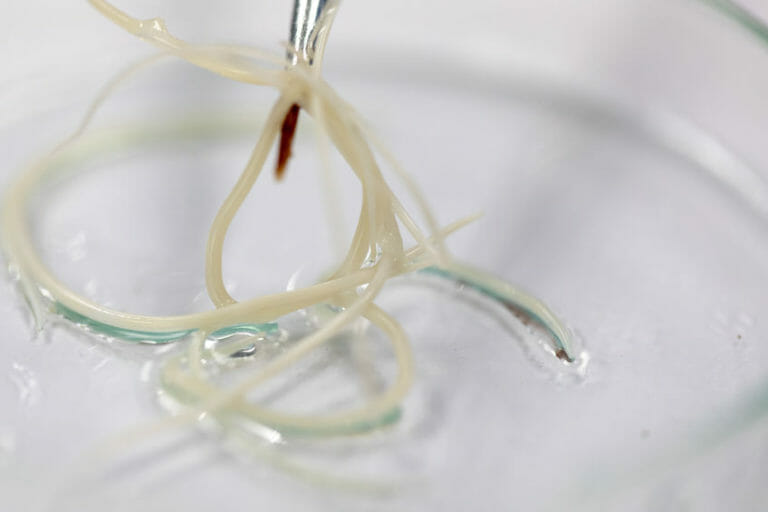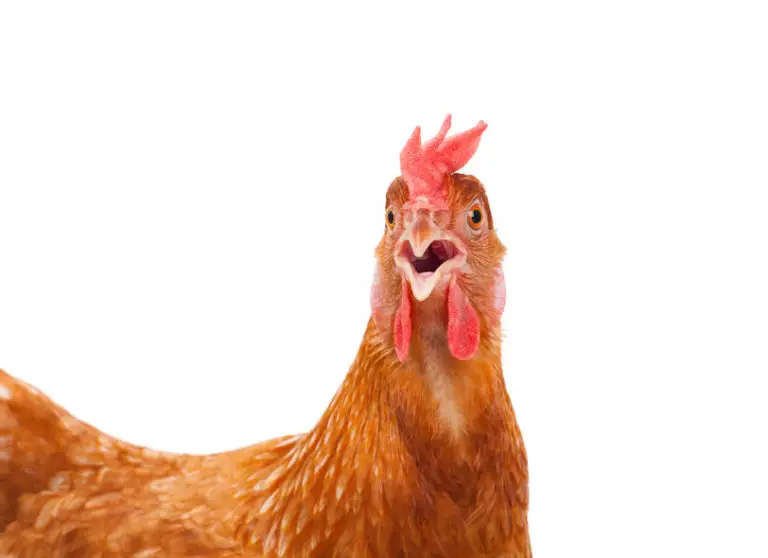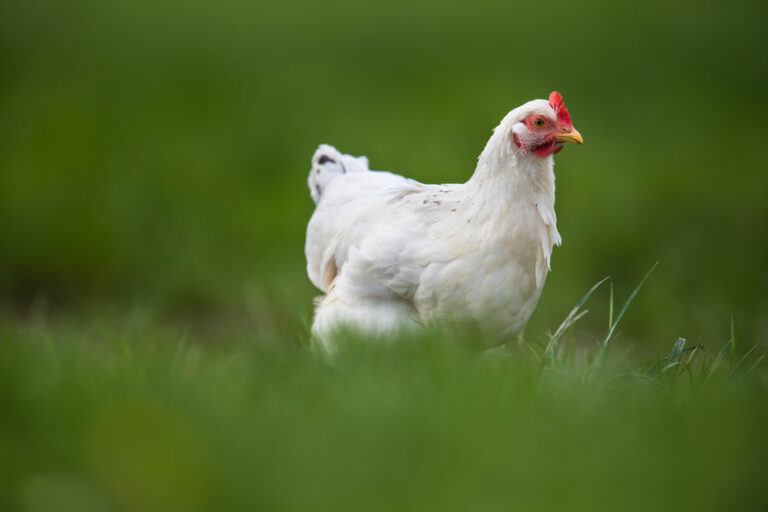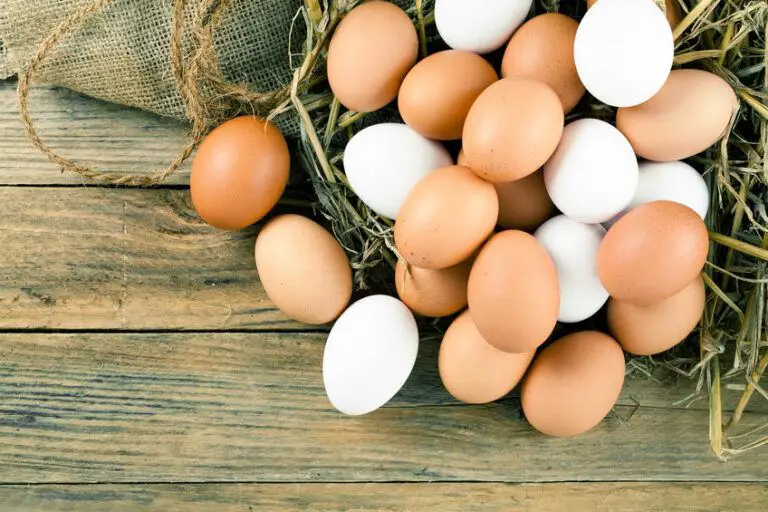Do Chickens Need Vaccinations? The Answer May Surprise You
Most of us would never even think of vaccinating chickens. After all, they are, well, yardbirds. Contrary to that school of thought, chickens require care just as any other pet would, and that includes ensuring they are properly vaccinated. But do chickens NEED vaccinations? The answer is yes or no, depending who you talk to.
Although many chicken farmers do not feel it necessary, there is compelling evidence that suggests it’s good practice. Let’s take a closer look.
To see a guide of how to set up your coop to minimize the risk of chicken illnesses, click here.
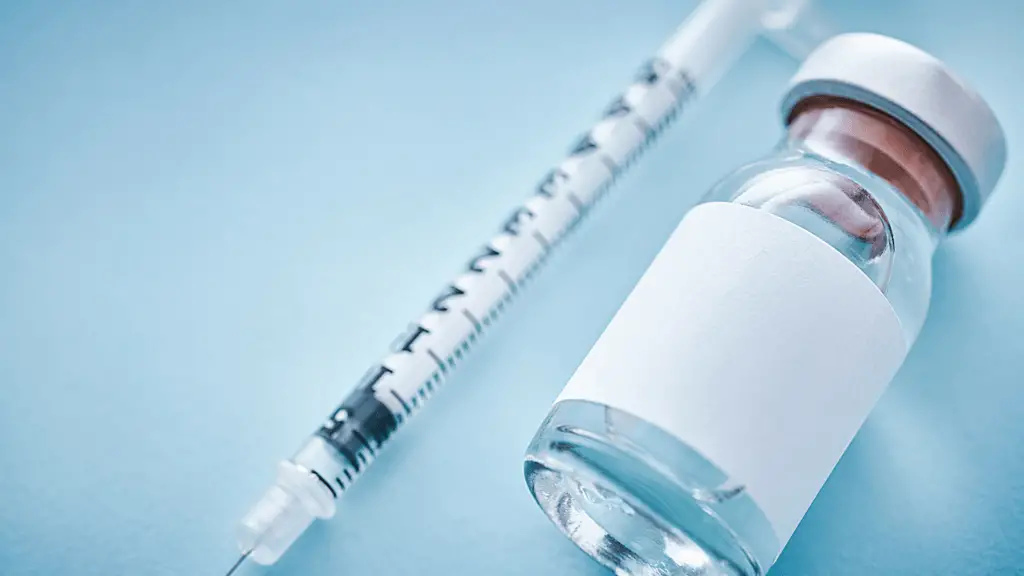
Reasons Chickens Are Vaccinated
Vaccinating chickens is done to maintain their health, protect the flock, and sometimes, ourselves. Certain poultry diseases can be fatal. This is particularly concerning for the commercial chicken farming industry. The flocks are extremely large, and the farmers can’t afford to have disease running rampant.
There’s quite a bit of debate among backyard chicken owners, the commercial poultry industry, and veterinary practitioners as to whether or not there is a need to follow a poultry vaccine schedule that’s designed more for commercial chickens. For some, vaccines safeguard livelihoods and the spread of disease. On the flip side, vaccines are seen as unnecessary.
Vaccines (regardless of type) are never 100% guaranteed; however, they are highly effective enough to ward off diseases, viruses, and illnesses. To better understand vaccines, let’s take a look at diseases that those vaccines are developed for.
Marek’s Disease
Marek’s disease is caused by the herpes virus Alphaherpesvirinae and is one of the most widespread diseases among poultry worldwide. There are four forms of Marek’s disease.
- Cutaneous (affects the skin)
- Neura (affects the nervous system)
- Visceral (affects the internal organs)
- Ocular (affects the eyes)
One bird can present with one or more forms. To prevent the spread, vaccinating for Marek’s disease is a must and is done as soon as the egg hatches.
The vaccine for Marek’s disease is a Serotype 3 vaccine developed using a strain of Marek’s occurring in turkeys. It is the oldest poultry serotype vaccine, and the least effective—mutation results in resistance. The vaccine is administered under the skin of the neck.
Newcastle Disease
Newcastle disease, now known as virulent Newcastle Disease, affects a chicken’s respiratory, nervous, and digestive systems. It is highly contagious and deadly. It spreads so fast that many chickens die before they show signs.
Although humans can contract the disease, it is mainly non-symptomatic. Humans may run a low fever with or without conjunctivitis. However, you only contract the disease from direct chicken to human handling, not from consuming poultry products, so go ahead and eat your scrambled eggs without fear.
More than one vaccine exists to fight Newcastle disease. However, each vaccine contains a strain of the live virus. One strain is the LaSota Strain, and the other is the B1 Type.
Infectious Bronchitis
Infectious bronchitis is a virus caused by the avian gammacoronavirus, and while highly contagious, it only affects chickens. As the name implies, the virus affects the bronchial tubes. This virus mutates quickly, and constant surveillance of a particular region where the disease is prevalent is necessary.
Live virus vaccines are typically given to young birds. The vaccine is often a combination of Infectious Bronchitis and Virulent Newcastle. More than one strain of the virus may be used.
Most prevalent strains:
- H120-H120
- H120-1/96 strains
Salmonella
Salmonella is a bacterial infection passed to the eggs from an infected hen. Symptoms may include dehydration, depression, diarrhea, and slow growth. However, keep in mind these are also symptoms of other diseases.
The vaccine works to reduce infection in hens, making the transmission of salmonella to the eggs harder. Salmonella is transmissible to humans so it’s vital that we take every precaution in handling chickens, eggs, and cleaning the coop.
Infectious Laryngotracheitis
Infectious laryngotracheitis is an acute herpes virus causing dyspnea, coughing, and rales. It causes nasal and ocular discharge, conjunctivitis, mild coughing, and tracheitis as a subacute disease.
There are three vaccine types available:
- Chick embryo origin (CEO)
- Tissue culture origin (TCO)
- Pox-vectored recombinant vaccine
Fowlpox
Fowlpox is not to be confused with chickenpox (though chicken is in the name, it has nothing to do with chickens.) Fowlpox is a viral infection that causes skin lesions and lesions in the upper GI and respiratory tracts.
The thickened lesions become thick scabs. It does sound a lot like chickenpox. The fowlpox vaccine is a chicken embryo proliferated, freeze-dried, live vaccine.
Fowl Cholera
Fowl cholera is a highly contagious bacterial infection caused by P.multocida infection. It is acute in young birds and raises mortality, and is chronic in older birds causing damage to the small intestine. The vaccine for contains an attenuated strain of Pasteurella multocida.
Infectious Bursal Disease
Infectious bursal disease attacks the bursa of fabricius located inside the bird’s vent area. It is a highly infectious disease affecting young chickens. As in other vaccines, the vaccine for this disease contains an intermediate strain of the virus.
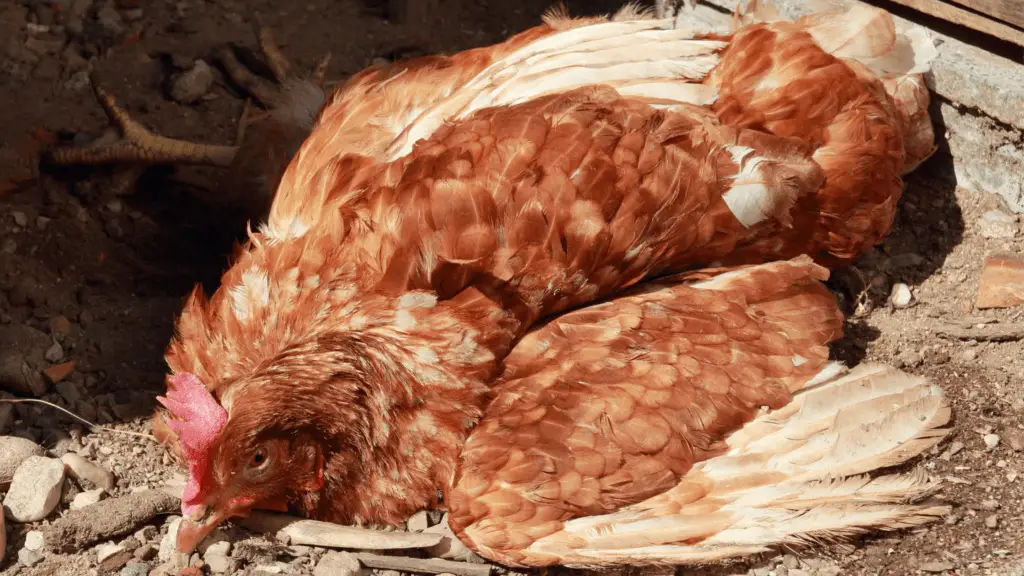
For issues to chicken foot issues, see this article.
Frequency of Chicken Vaccinations
According to the Merck Manual for Veterinary Medicine, the schedule and frequency of vaccinations are dependent on the breed and purpose (broiler, layer, commercial) of the chicken. However, for backyard chickens, vaccination protocols are a bit different.
Backyard chickens (and small flocks) should be vaccinated for Marek’s disease. As for other vaccines, they are not typically warranted unless:
-
Symptoms of disease or illness are present.
- Lack of interest in things
- Lack of appetite or drinking, including changes in food/water consumption
- Poor appearance
- Swollen eyes
- Discharge from eyes or nares
- Diarrhea
- Limping or favoring a certain limb
- New chickens are introduced into the flock.
- Chickens are exposed to outside poultry (such as poultry shows, etc.)
We recommend that you consult with your veterinarian for any concerns or questions on vaccinating your chickens.
Are There Any Side Effects From the Vaccinations?
Any vaccine has the potential to cause side effects, especially when administering a live vaccine. Reactions in birds range from respiratory noise, head shaking, and watering of the eyes.
Excessive reactions can occur, primarily related to respiratory vaccines. Therefore, the birds often receive routine antibiotics after vaccination. A prolonged reaction to a vaccine may cause low body weight, poor uniformity, and the unwanted side effect of mortality.
Where Do I Get Vaccinations?
For backyard chickens, check with your veterinarian to obtain the vaccines. We don’t recommend purchasing vaccines from unreliable sources. Self-vaccinating chickens should only be done by those who are qualified or experienced.
The Last “Cluck”
Whether we vaccinate our chickens or not comes down to a personal preference. However, we should take into account the safety of our chickens, ourselves, and those who come into contact with our yardbirds.
Caring for our flocks is generally not a difficult undertaking. Providing shelter, food, water, and a place to lay eggs is about it on a day to day basis. So adding vaccinations into the mix isn’t something too labor intensive, but will involve some added expense.
For those of you who don’t want to vaccinate their flocks, we get it. Again, it comes down to a matter of preference. We’ve researched the pros and cons and are happy you stopped to read this article!
If anyone has a comment on the topic, please share below. We’ve provided our opinion and would love to hear yours a well.
Happy Chickening!


